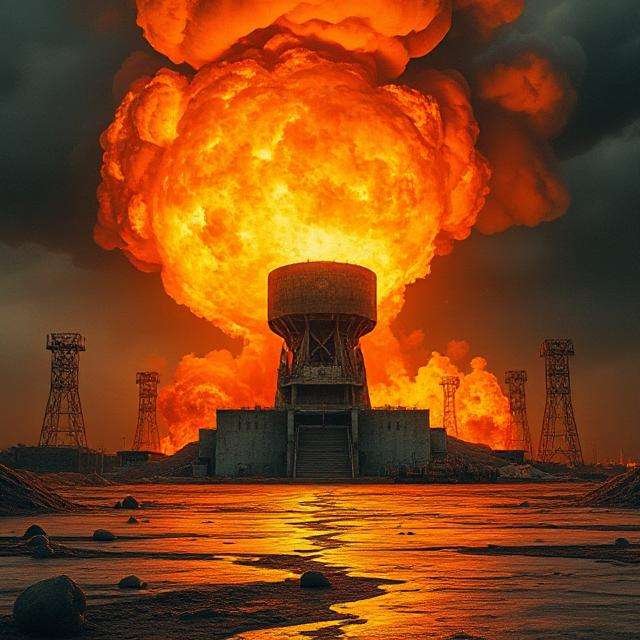After India Pakistan War IPL 2025 Suspended

In an unprecedented development that has sent shockwaves through the cricketing world and across the nation, the Board of Control for Cricket in India (BCCI) announced on Friday, May 9, 2025, the immediate suspension of the remainder of the TATA IPL 2025 season. This momentous decision comes amidst a rapidly escalating military standoff and a “war-like situation” between India and Pakistan, triggered by recent security incidents and retaliatory actions.
The suspension marks a rare halt in the otherwise uninterrupted flow of the world’s most lucrative T20 league. While the IPL has faced disruptions in the past, primarily due to Indian general elections requiring a shift in venue or the unforeseen circumstances of the COVID-19 pandemic leading to postponements and relocation, this is the first time the tournament has been directly impacted by heightened geopolitical tensions of this magnitude between the two South Asian neighbors.
The situation unfolded rapidly over the past few days. Following a terrorist attack in Pahalgam on April 22, which resulted in significant casualties, India launched “Operation Sindoor,” executing precision strikes on what were described as terrorist camps across Pakistan and Pakistan-occupied Kashmir. This action led to a swift and aggressive response from Pakistan, including reported missile and drone incursions into Indian territory.
The ripple effects of these escalations were immediately felt, impacting civilian life and prompting heightened security alerts across various parts of India, particularly in states bordering Pakistan. Airspace restrictions were reportedly put in place in certain regions, and a sense of unease permeated the atmosphere.
The direct impact on the IPL became evident on Thursday, May 8, when a scheduled match between Punjab Kings and Delhi Capitals at the HPCA Stadium in Dharamsala was abandoned mid-way. Reports indicated that the decision was taken due to security concerns following air raid alerts in nearby areas like Jammu and Pathankot, which are in proximity to Dharamsala. The abrupt halt of the match, the evacuation of spectators, and the subsequent arrangement of a special train by the BCCI to move players and support staff from Dharamsala to Delhi underscored the gravity of the situation.
Following the events in Dharamsala and the continued escalation of military activities, the pressure on the BCCI to take a decisive step mounted. Franchises, players (especially overseas cricketers who reportedly expressed anxiety), broadcasters, and other stakeholders conveyed their concerns regarding the feasibility and appropriateness of continuing the tournament amidst the volatile environment.
Multiple reports on Friday, May 9, confirmed that the BCCI held emergency discussions to assess the situation. A senior BCCI official was quoted as saying that it “does not look nice that cricket goes on while the country is at war,” reflecting the sentiment within the board that national interest and the safety of all involved in the league were paramount.
The official statement from the BCCI announced a suspension for “one week” with immediate effect, indicating that further updates regarding the schedule and venues would be provided after a comprehensive assessment in consultation with relevant authorities and stakeholders. However, many media outlets and sources close to the developments reported an “indefinite suspension,” highlighting the uncertainty surrounding the potential resumption of the tournament given the unpredictable nature of the conflict.
The suspension leaves 16 matches remaining in IPL 2025, including the crucial playoff fixtures and the final originally scheduled for May 25 in Kolkata. The timing of the suspension, in the latter half of the league stage, adds to the complexity of finding a suitable window for its completion, especially considering India’s packed international cricket schedule for the remainder of the year.
The decision to suspend the IPL is not merely a logistical one; it carries significant symbolic weight. Cricket, often referred to as a religion in both India and Pakistan, is deeply intertwined with national pride and public sentiment. In times of heightened tension, continuing a major sporting event like the IPL could be perceived insensitively by a nation focused on the security situation and the efforts of its armed forces. The BCCI’s move signals solidarity with the nation and prioritizes the prevailing national mood over sporting entertainment.
The impact extends beyond the teams and players to the vast ecosystem surrounding the IPL, including broadcasters, sponsors, vendors, and the countless fans who eagerly follow the tournament. The financial implications of the suspension, even if temporary, are significant.
The situation also draws parallels with the impact of Indo-Pak tensions on the Pakistan Super League (PSL). Reports indicated that the PSL was also affected, with some matches potentially being moved to a neutral venue like the UAE due to the prevailing security concerns in Pakistan.
As of May 9, 2025, the future of IPL 2025 remains uncertain. While the BCCI’s statement mentions a one-week suspension, the ground reality of the Indo-Pak tensions will ultimately dictate the possibility and timing of any resumption. The focus for now is on ensuring the safety and safe passage of players and personnel. The cricketing world, and indeed the nation, will be closely watching the developments, hoping for a swift de-escalation of tensions and a return to normalcy, which might eventually pave the way for the completion of the much-loved IPL season.
This unprecedented suspension serves as a stark reminder of how geopolitical realities can intersect with and impact even the most prominent sporting events, highlighting the delicate balance between sport and national security.
Also Check Out Our New Article About :- Top 5 Laptops under 40000 By FlipKart
Also Check This Amazing Product By Agrawal Mobiles







